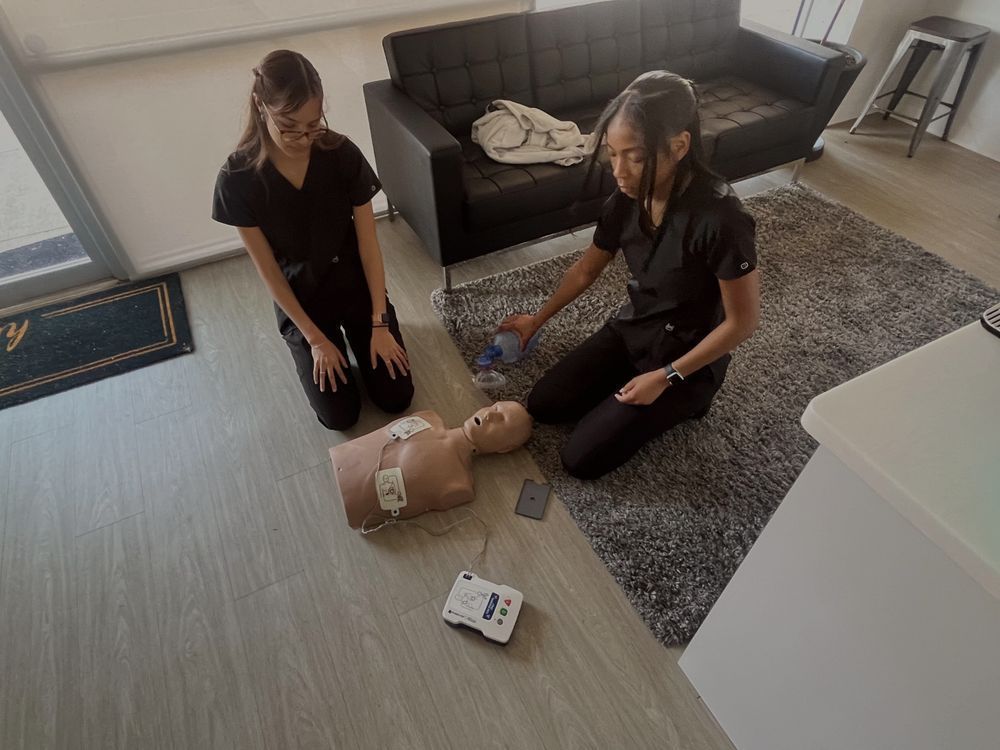16 Ways to Support and Retain Medical Assistants on Your Team
16 Ways to Support and Retain Medical Assistants on Your Team
In today’s healthcare environment, retaining skilled medical assistants (MAs) is more critical than ever. These professionals serve as the backbone of patient care, often acting as the bridge between administrative tasks and hands-on clinical support. As demand for qualified MAs continues to rise, clinics, hospitals, and practices that invest in their staff’s well-being and professional development are more likely to maintain a stable, efficient team.
High turnover not only affects morale and continuity of care, but it can also lead to increased training costs and staff burnout. Fortunately, with the right approach, employers can boost retention and ensure that medical assistants feel valued, supported, and committed to long-term career growth. Here are 16 proven strategies to help support and retain medical assistants on your team.
- Offer Competitive Compensation
One of the most direct ways to show appreciation for medical assistants is to offer fair and competitive wages. Benchmark salaries against local and national standards, and ensure they reflect the value MAs bring to your organization. Competitive pay is one of the top drivers of retention in healthcare roles.
- Provide Clear Career Advancement Opportunities
Medical assistants are often ambitious professionals looking to grow within the healthcare field. Offering career ladders, continuing education support, and clear promotion paths can encourage long-term retention and professional investment.
- Invest in Ongoing Training and Education
Support your MAs by offering training programs that help them stay current with evolving clinical practices, technology, and administrative systems. Reimbursement for certifications or courses demonstrates your commitment to their development and builds a stronger care team.
- Foster a Respectful and Inclusive Workplace
Respect and inclusion go a long way in making MAs feel like vital members of the healthcare team. Promote a workplace culture that values diversity, fosters collaboration, and treats every staff member with dignity—regardless of their role.
- Encourage Work-Life Balance
Overworked staff are more likely to burn out. Create flexible scheduling options where possible, provide adequate time off, and encourage your team to maintain a healthy balance between personal life and professional duties.
- Recognize and Reward Excellence
Recognizing top performers with praise, awards, or bonuses helps MAs feel appreciated. Regular feedback sessions, employee of the month programs, and shout-outs in team meetings can all contribute to a more motivated and engaged workforce.
- Offer Mentorship Programs
Pairing new MAs with experienced staff members can foster a sense of community, speed up onboarding, and improve retention. Mentorship also supports professional development and creates a culture of shared learning.
- Create a Supportive Onboarding Process
A strong start sets the tone for long-term success. Ensure that new MAs are welcomed with a well-organized orientation, adequate training, and ongoing support during their first few months. This builds confidence and loyalty from the beginning.
- Encourage Open Communication
When MAs feel heard, they’re more likely to stay. Create a workplace culture where staff can voice concerns, ask questions, and share ideas without fear of judgment. Regular check-ins and anonymous feedback channels can make a big difference.
- Prioritize Safe Working Conditions
Ensuring physical safety—through proper training, supplies, and policies—is essential. But psychological safety matters too. Support your team by addressing bullying, harassment, or toxic workplace behaviors immediately and decisively.
- Streamline Workflows and Reduce Burnout
Medical assistants often juggle numerous responsibilities. By investing in efficient systems, adequate staffing levels, and thoughtful workflow design, you can help reduce unnecessary stress and allow MAs to focus on meaningful patient care.
- Celebrate Milestones and Achievements
Celebrate work anniversaries, birthdays, and team accomplishments to build camaraderie and acknowledge your MAs’ dedication. These small moments foster community and remind staff they’re part of something bigger.
- Promote Team Building Activities
Team lunches, volunteer events, or wellness challenges can strengthen relationships across departments and boost morale. A connected team is a resilient team—and one that is more likely to stay together.
- Offer Mental Health Resources
Support MAs holistically by providing access to counseling services, stress reduction programs, or mental health days. When staff are mentally well, they are more engaged, productive, and likely to stay.
- Provide Leadership Opportunities
Give MAs a chance to take the lead on projects, serve on committees, or contribute to quality improvement initiatives. Leadership roles boost confidence, foster loyalty, and encourage long-term career commitment.
- Solicit and Act on Feedback
Regularly ask your medical assistants what’s working—and what isn’t. More importantly, act on their feedback. This shows that leadership values their input and is willing to make changes that benefit the entire team.
Build a Culture Where Medical Assistants Can Thrive
Supporting and retaining medical assistants isn’t just about benefits or bonuses—it’s about building a workplace culture where these vital healthcare professionals feel seen, heard, and empowered. By implementing these 16 strategies, employers can foster long-term loyalty, improve patient care outcomes, and reduce the disruption of constant turnover.
If you’re building your medical assistant team or considering a new career in healthcare, Pulse Medical Assistant School offers an excellent foundation. Our online-first, 16-week medical assistant program includes intensive, in-person labs that give aspiring medical assistants the confidence to help real patients receive real care. Learn more about how Pulse can help launch or support your healthcare journey today.
You're only a few months from the medical assistant career you deserve.
